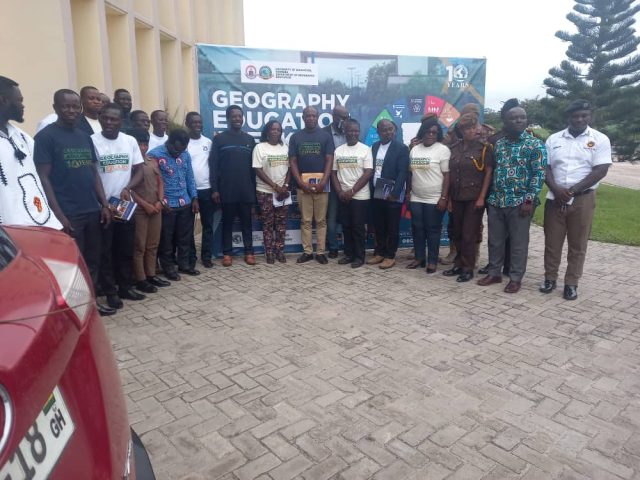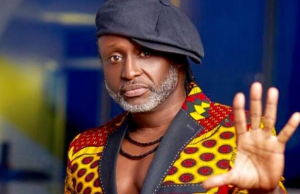Professor Ruby Hanson, the Dean of the faculty of Science Education, University of Education Winneba (UEW), has underscored the importance of Geography in development.
He said based on its importance the subject must be made more relevant for the benefit of humanity.
Prof. Hanson, who was delivering the keynote at a day’s seminar organised by the Department of Geography Education of UEW to commemorate their 10th Anniversary at Winneba, stressed the need for Geography to be made the cornerstone and not the missing link of Ghana’s Sustainable Development agenda.
“Efforts must be made to double the training and supporting of teaching and learning of geography from primary schools to the tertiary level.
The event on the theme: “Building a Sustainable Ghana; The Role of the Geographer,” was attended by Deans, Lecturers, Heads of Departments and Students from various faculties.
It is the second edition since the Department was established in 2013.
She said the concept of sustainable development of which Geography played an important role sought to improve the living conditions of all by promoting economic prosperity, social inclusion, environmental conservation and good governance.
“I have learnt that even our national budget, which is financial and sectorial, can be made spatial (spatial budgeting), our policing system, our political appointment, and many others are all geography based.
“Stakeholders must take the opportunity to dialogue, collaborate and exchange ideas and contribute to its growth,” she noted.
Prof. Hanson said Ghana was currently faced with challenges, including environmental issues, disasters, climate change, devastating floods in Accra and other parts of the country, persistent bushfires, biodiversity depletion, deforestation and desertification, which needed experts in geography to help in solving them.
The Head of Department of Geography Education, Prof. Ishmael Yaw Dadson by the Department, appealed for support to train more Geographers, Environmental Science Teachers, Researchers and Practitioners whose expertise were needed in all sectors of the economy.
The Department produced graduates equipped with relevant knowledge, professionals, skills and positive attitude to enable them to become effective Geography teachers, researchers and practitioners to contribute meaningfully to the development of Ghana and beyond.
Enumerating its successes, Prof. Dadson said the Department in September 2021, collaborated with the University of Derby, United Kingdom (UK), to organise a Virtual Mobility Workshop on ‘Realising Sustainable Development Goal 17: Partnership for the goals’, at the Environmental and Geospatial Sciences Laboratory, funded by the Association of Commonwealth University.
It had also collaborated with stakeholders in the Effutu Municipality to organise a workshop for students in the Department on some courses of study in political geography, regional planning and development to develop a Disaster Risk Management Plan for Effutu Municipality, which was successful.
He announced that aside from its achievement, it had numerous challenges including, inadequate office space for staff, teaching and learning resources, such as projectors, computers, P. A systems and improved electrical gadgets in lecture halls.
These when addressed, he said would go a long way to help the Department produce more well-equipped Geography graduates with relevant knowledge, professional skills and positive attitude to effectively execute their duties towards the development of the country.
He expressed appreciation to all who had supported and contributed to the growth and successes of the Department.
He stated that the Department of Geography Education of the University must continue to work hard to project the image of the institution at the global level.
Prof. Justice Camillus Mensah, the Project Manager of Hen Mpoano and Prof. Simon Mariwah of the Department of Geography and Regional Planning of the University of Cape Coast, were the facilitators of the seminar.
They schooled the participants on ‘Combating Deforestation and Forest crime in Cape Three Point and Subri River Forest reserves’ and ‘The Power of Geography: The Socio-Economic Development of Ghana, through the lens of the geographer.’

















